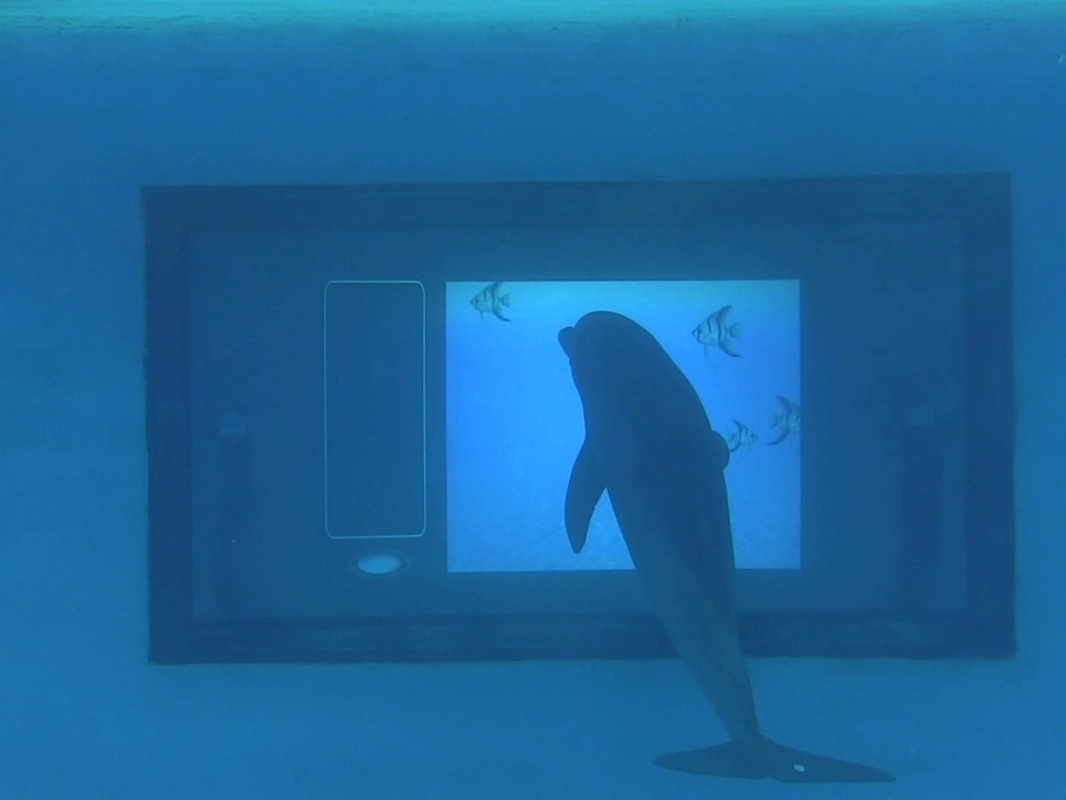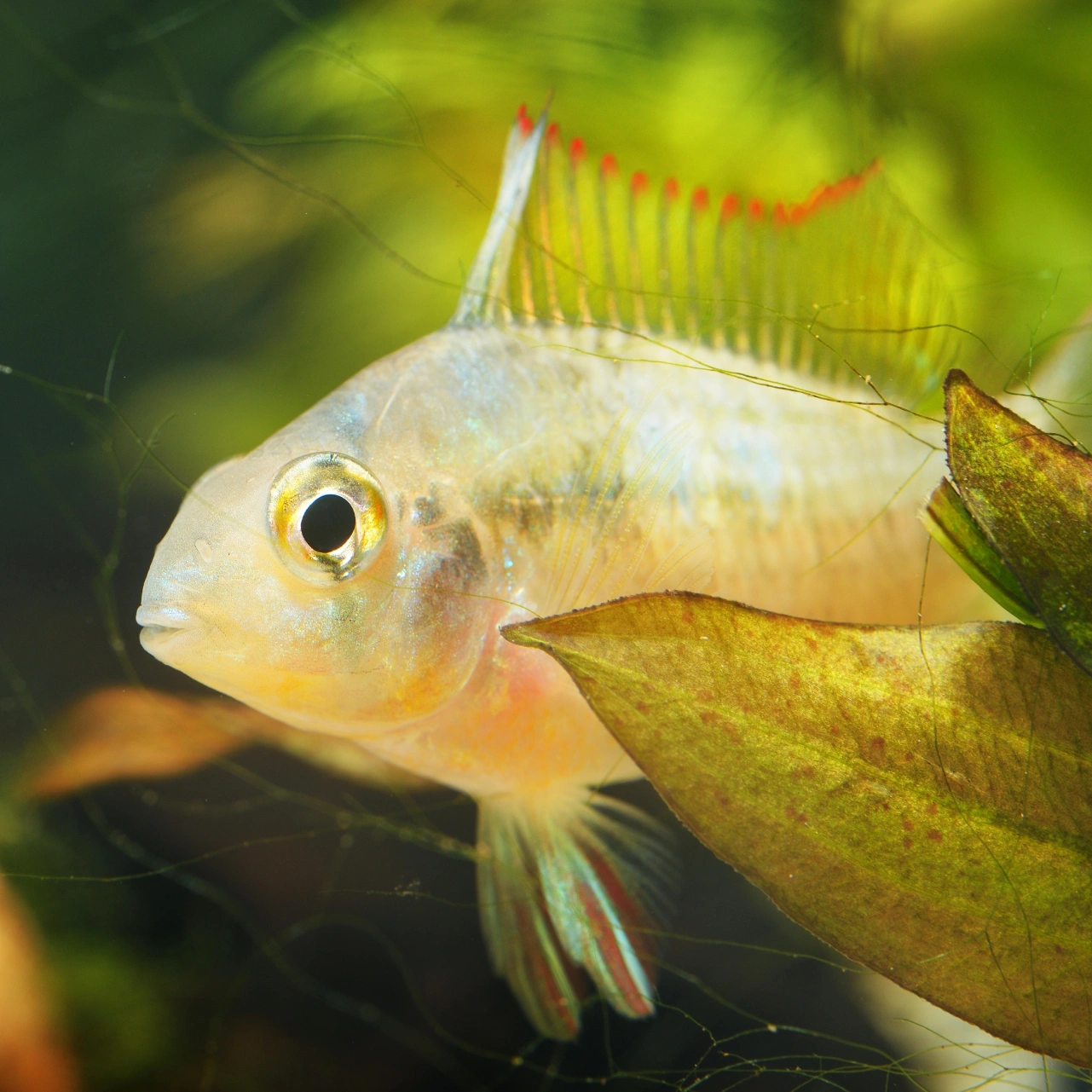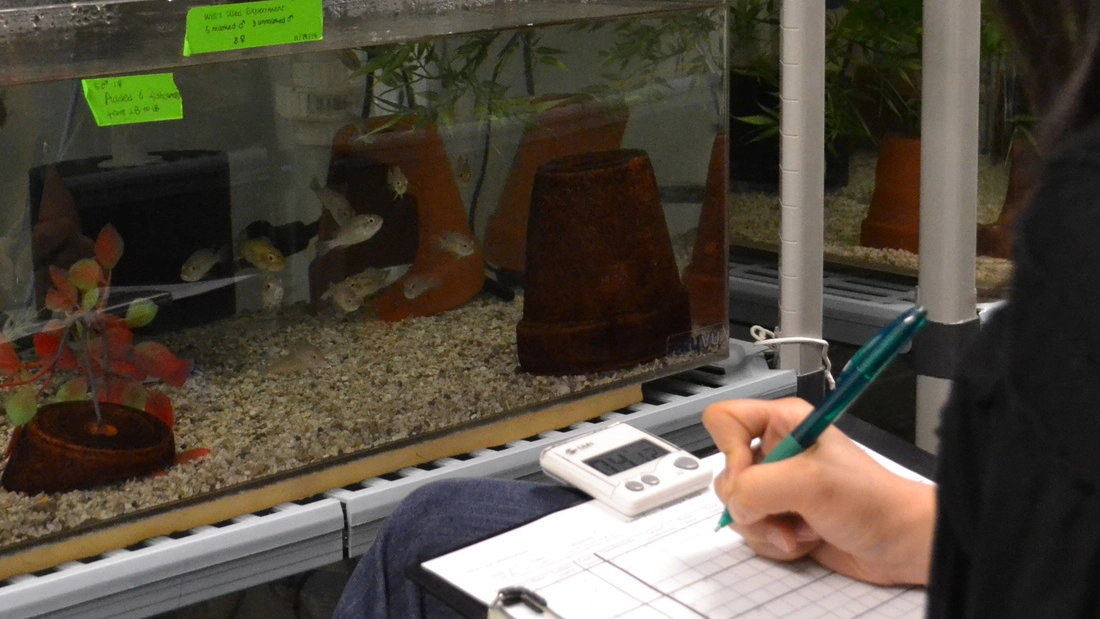Certificate Program
About the
Certificate Program
The Animal Behavior & Conservation Advanced Certificate program provides formal recognition of the training in Animal Behavior & Conservation for students who already possess a baccalaureate or graduate degree in another area, and, by virtue of prior educational or practical experience in animal behavior and conservation, are qualified for the additional training described in this program.
Certificate Program
Degree Requirements
Courses taken for the certificate may be used as credits towards the Animal Behavior & Conservation MA program, if a student applies and is accepted.
Research Project
Although a thesis is not required for non-degree students, the ability to conduct research in the Animal Behavior & Conservation area must be demonstrated either through prior experience or completion of a research project while in the Certificate program.
Certificate Program Curriculum
15 credits, 5 courses
- The Animal Behavior & Conservation (ABC) Advanced Certificate Program consists of two required courses and three elective courses.
- Each course carries three credits.
- All required, and most other courses, are offered after 5:30 pm, enabling students to complete the requirements while working.
- Not all courses listed are scheduled every year and may vary by semester.
Required Coursework6 credits, 2 courses
PSYCH 71700 - Animal Behavior and Conservation in Captivity and the Wild
Hours: 3 hours including conference
Department: Psychology
Introduces concepts and techniques of wildlife biology and comparative psychology, with contributions from researchers in social behavior, reproductive biology, wildlife conservation, captive breeding, and animal cognition and communication.
*PSYCH 64100 - Comparative Psychology
Semester: Fall, Winter, Spring, Summer
Hours: 45 hrs including conference
Department: Psychology
Development and evolution of the behavior of various species, major theoretical issues, classic experiments, and contemporary research and theory.
*PSYCH 71600 can be taken in lieu of PSYCH 64100, though taking PSYCH 64100 is generally recommended.
Elective Coursework9 credits, 3 courses
Animal Behavior Electives
PSYCH 64100 - Comparative Psychology
Semester: Fall, Winter, Spring, Summer
Hours: 45 hrs including conference
Department: Psychology
Development and evolution of the behavior of various species, major theoretical issues, classic experiments, and contemporary research and theory.
PSYCH 68066 - Urban Animals
Semester: All terms
Department: Psychology
Urban Animals
PSYCH 71600 - Animal Behavior I: Mechanisms of Behavior
Semester: Fall (only)
Hours: 45 including conference
Department: Psychology
History of approaches to animal behavior; behavior development; proximate causation of behavior (motivation, neuroethology, and biorhythms); animal orientation and communication; cognitive ethology and culture.
PSYCH 71700 - Animal Behavior and Conservation in Captivity and the Wild
Semester: Fall (only)
Hours: 45 including conference
Department: Psychology
Introduces concepts and techniques of wildlife biology and comparative psychology, with contributions from researchers in social behavior, reproductive biology, wildlife conservation, captive breeding, and animal cognition and communication.
PSYCH 71751 - Field Study in Animal Behavior and Conservation
Semester: Fall (only)
Hours: 45 including conference
Department: Psychology
Observation and study of the behavior of animals in their natural environment and application of techniques of observation and data analysis.
PSYCH 71800 - Ethology (Animal Behavior II – Behavioral Ecology)
Semester: Fall (only)
Hours: 45 including conference
Department: Psychology
Examines behavioral genetics, which covers the importance of single-gene effects, polygenic behavioral traits, and the utility of the concept of heritability; behavioral evolution, which covers the methods of elucidating the phylogeny of behavior when fossil evidence is not available; behavioral ecology, which focuses on mating systems, territorial behavior, feeding strategies, antipredatory behavior, and sociobiology.
PSYCH 75048 - Behavioral Ecology: Applications to Wildlife Conservation in our Changing World
Semester: Fall, Spring
Department: Psychology
Behavioral Ecology: Applications to Wildlife Conservation in our Changing World
PSYCH 75096 - Cultural Conflicts in Conservation
Semester: Fall (only)
Hours:
Department: Psychology
PSYCH 75400 - Applied Animal Welfare & Behavior
Semester: Fall (only)
Hours:
Department: Psychology
Fundamental principles of animal behavior discussed in context of their applications to captive animal management (in laboratories, farms, zoos, aquariums, and shelters), animal welfare, and conservation. Programmatic approaches to animal care (e.g. enrichment and training) and animal welfare assessment tools will be described and evaluated.
PSYCH 75700 - Animal Thinking and Communication
Semester: Fall (only)
Hours:
Department: Psychology
Prerequisite: PSYCH 71700 or permission of instructor or of Animal Behavior and Conservation Coordinator
This course focuses on animal cognition and communication from the perspectives of communication theory, animal behavior, cognitive ethology and comparative cognition. Research on chimpanzees, dolphins, elephants, parrots and other animals will be covered.
PSYCH 75800 - Conservation Biology/Psychology
Semester: Fall (only)
Hours: 30 hrs lecture, 30 hrs lab
Department: Psychology
This course provides an understanding of biodiversity, human impacts on biodiversity, the theory and practice of maintaining biodiversity in a developing world, and the social psychology of motivating action to protect nature.
Certificate Program Admissions Criteria
Students must demonstrate research skills, either through relevant work outside of the program or by the successful completion of an independent research or field project.
Applicants will be ranked according to grade point average, two letters of recommendation, personal statement, as well as course work and experience relevant to animal behavior and conservation.
Application Checklist
You must meet the following minimum requirements in order to be considered for admission. Meeting these minimum requirements does not guarantee acceptance to the program.
- A bachelor’s degree from a regionally accredited institution comparable in standard and content to a bachelor’s degree from Hunter College.
- Minimum undergraduate grade point average of 3.0.
- A statement of purpose of approximately 500 words describing your objectives in undertaking graduate study. In reviewing applications, considerable importance is placed on the applicant’s interest in and commitment to advanced study and professional development.
- Two letters of recommendation from appropriate academic or professional sources.
- Applicants whose native language is not English and who have taken all or part of their undergraduate education in a country where English is not the native language are required to submit scores on the TOEFL/IELTS. The following minimum scores must be obtained:
- TOEFL iBT: 80/ Paper Based Test: 550/ Computer Administered Test: 213
- IELTS; 6.5 Overall Band Score
Application Information
Applications are submitted through Hunter College Graduate Admissions. Before applying, review the Graduate Admissions links below.
Hunter College Graduate Admissions
Hunter College Graduate Admissions ABC MA Program
Application Deadline
February 1st, 2026
Contact
Nicolina Steinhoff, Graduate Advisor
gr_psych@hunter.cuny.edu
212-772-5550





